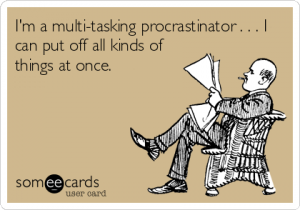As I sat down to write this blog post, I was hoping that the coffee I was sipping on would give me that extra boost I needed to make it through the day. I sat at my desk for about ten minutes just trying to think of a topic to blog about. Then it hit me, as I was drinking my coffee, I began to wonder if there was a connection between coffee addiction and genetics. I drink coffee every single day, as many college students do, and I have become dependent on it to make it through all of my classes and assignments. I recognize that I have a caffeine addiction, however, it never really occurred to me that it could be because of my parents’ coffee addictions. Upon just a simple search online, I uncovered a recent study showing that coffee addiction can in fact be genetic. (Image)
drink coffee every single day, as many college students do, and I have become dependent on it to make it through all of my classes and assignments. I recognize that I have a caffeine addiction, however, it never really occurred to me that it could be because of my parents’ coffee addictions. Upon just a simple search online, I uncovered a recent study showing that coffee addiction can in fact be genetic. (Image)
On August 25, 2016, Alexandra Sifferlin of TIME Magazine published an article describing the recent research performed on coffee addiction, which ties it back to genetics. The study took participants from two locations, Italy and the Netherlands, and juxtaposed their responses. The participants from each of the two locations were asked to report how much coffee they consume each day. In total, about three-thousand people were surveyed and gave their responses. Researchers found a connection between the gene PDSS2, which regulates caffeine in the body, and how much coffee people drink. The more interesting discovery though, was that people with more of the gene PDSS2 drink coffee less frequently than those who carry less of the gene PDSS2. The bodies of those with more of the PDSS2 gene also tend to break down caffeine over a longer period of time than those with less of PDSS2 (Sifferlin 2016).
TIME Magazine reported that this recent study between coffee consumption and genetics is not the only one of its kind. A study conducted in October of 2014, found that there are multiple genes associated with how much coffee people drink. The 2014 study found six different genetic indicators related to how the body reacts to caffeine consumption (Molecular Psychiatry 2014). Although TIME Magazine reported on a connection that has been looked into before, their report revealed a major discovery for caffeine consumption and addiction.
This article published by TIME Magazine introduced me to the connection between genetics and caffeine addiction for the first time. While it does make sense that the two are related, I had never really put much thought into it before. Although I have no proof that my body carries a low abundance of the gene PDSS2, I can assume so based on my personal high coffee consumption. I’ll be sure to call my parents and thank them for making me a coffee addict as soon as I publish this blog post.
Curious about whether or not you are drinking coffee at optimal times? Check out this video which explains when you should be drinking coffee.
- Sources:
- http://time.com/4464843/genetics-coffee-consumption-caffeine/
- http://www.nature.com/articles/mp2014107.epdf?referrer_access_token=k5F2AstMUV9O6U6gHoKuKNRgN0jAjWel9jnR3ZoTv0P6jbW2dPRj1OfWw_uLEeT8Hb1U2eMYGK69UTy-ZvExDTG3TlnjvLicToTtmJKy10Kj0cOOkj3OHMr70Xu_2ThfE7HvEOV71FVwhdCXq40XwfO5axz1j22xJKnE2ykmRQHrBGntzV9bI-qb_6sOBbOXVVsw0IzGGHX06ZIQpIdgicab01HP-F9ZTf2VGkbSlWk%3D&tracking_referrer=time.com



